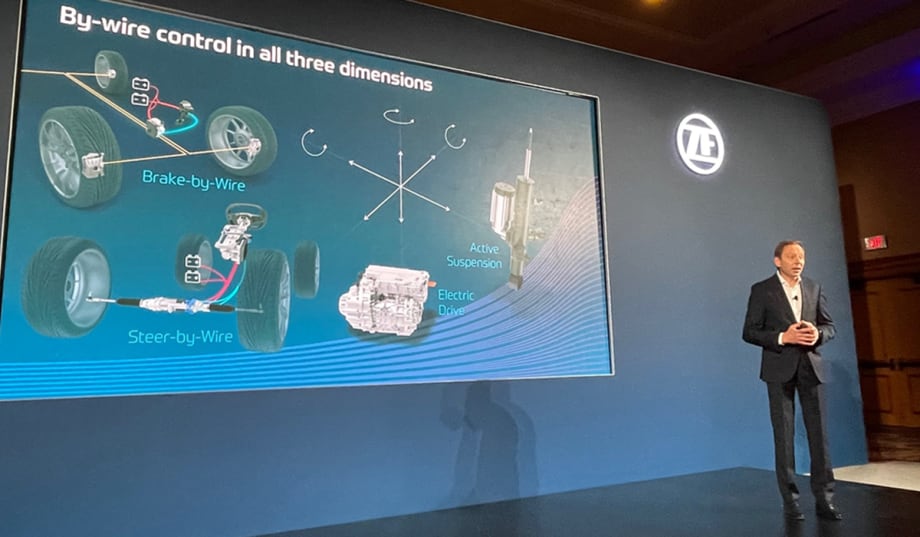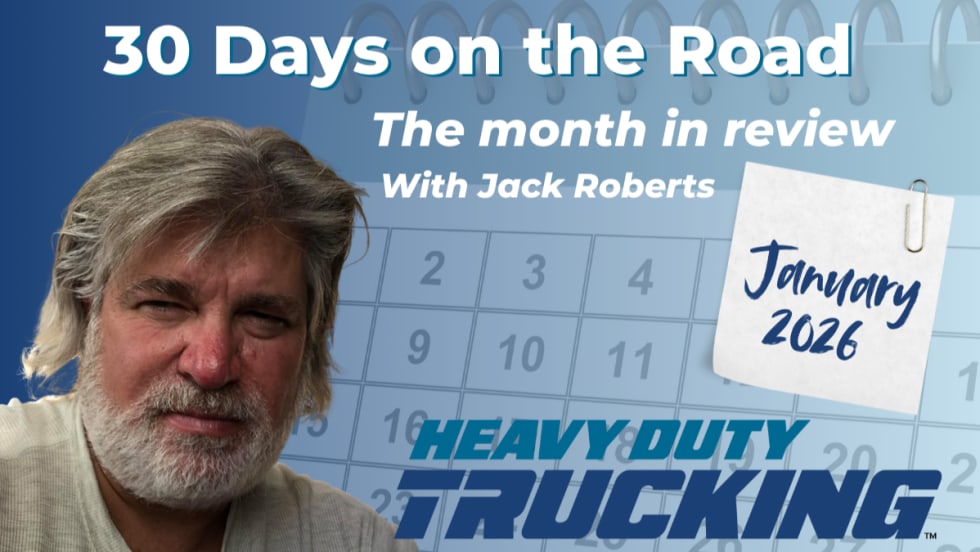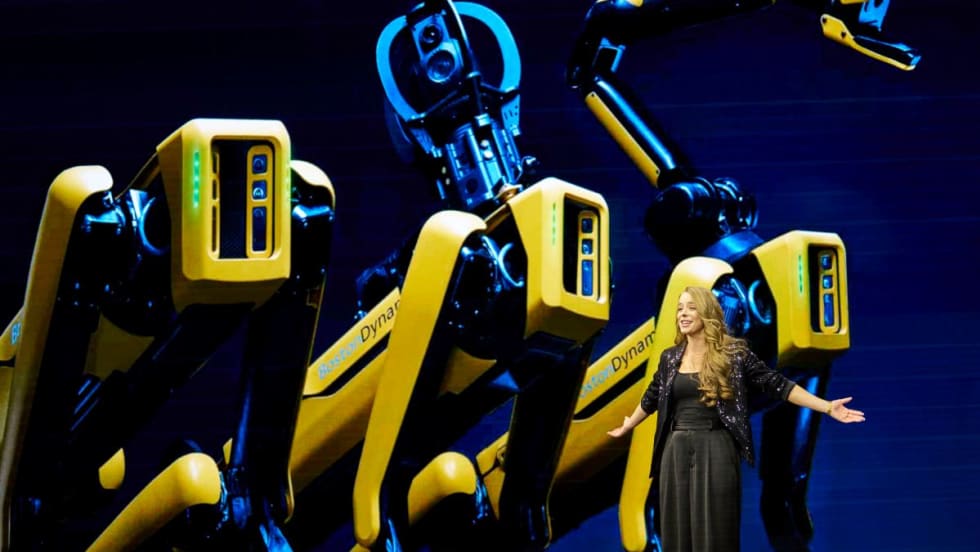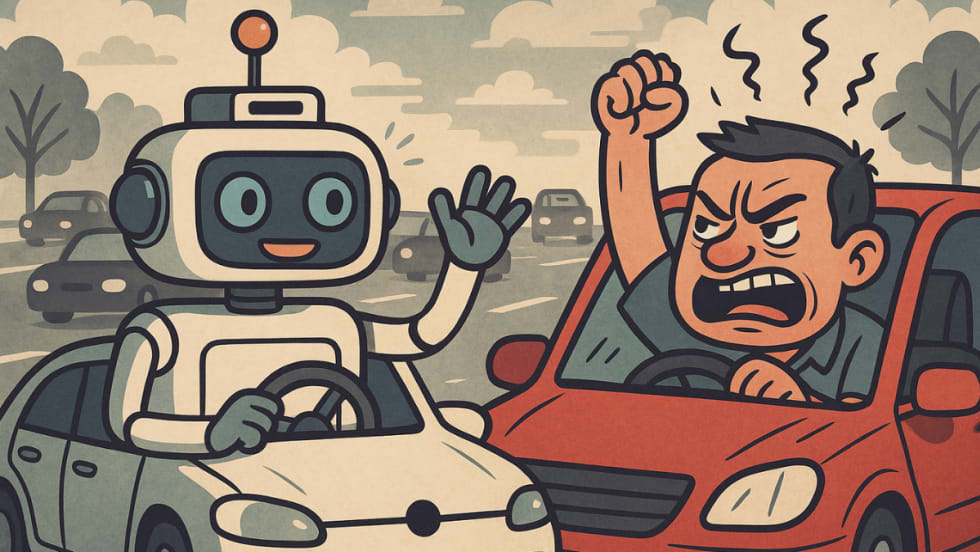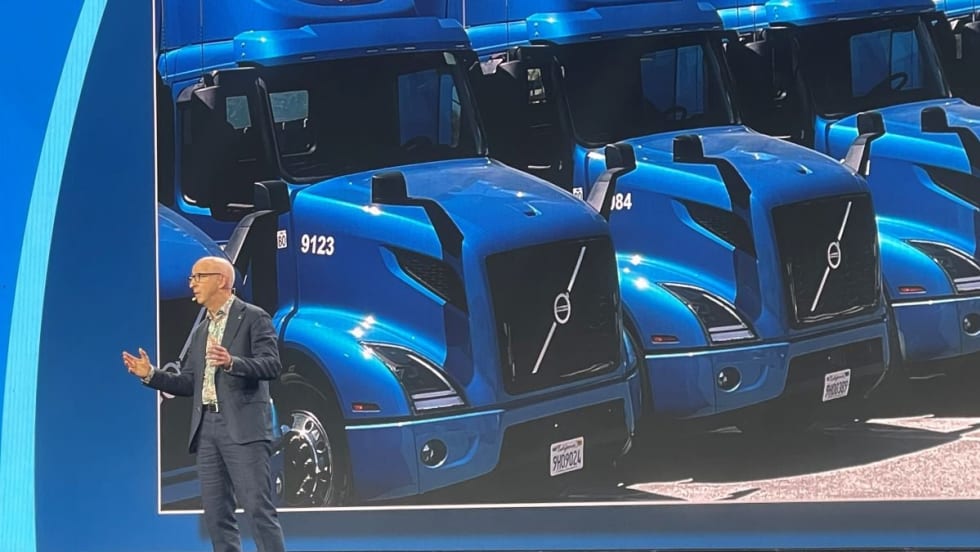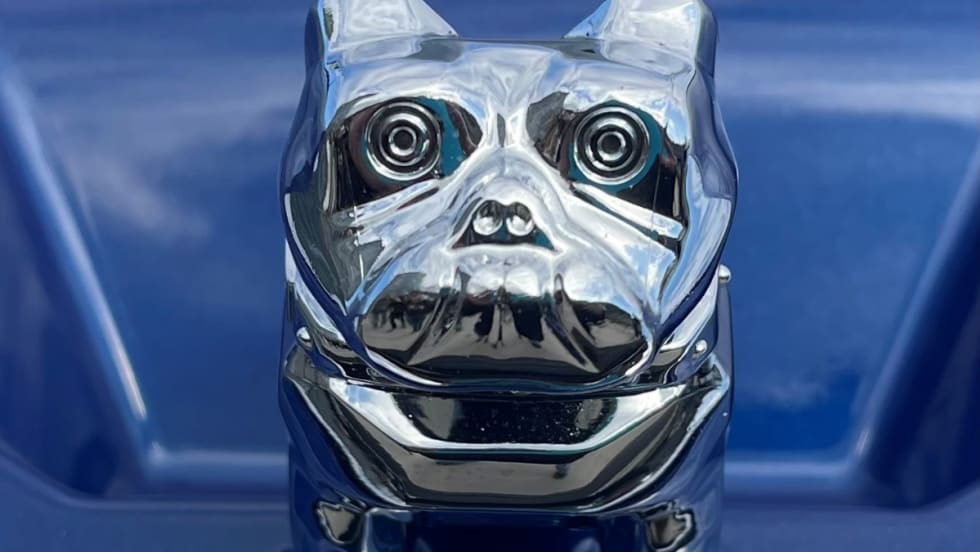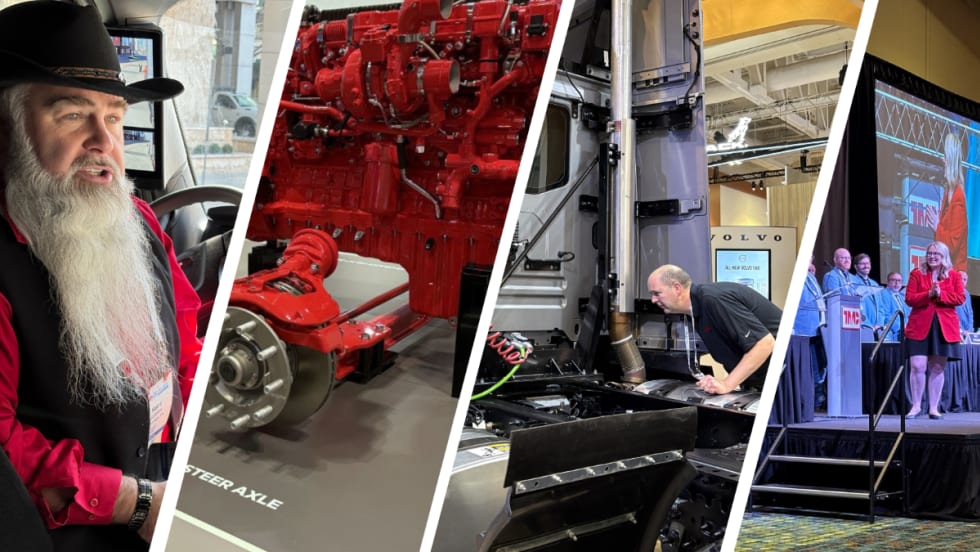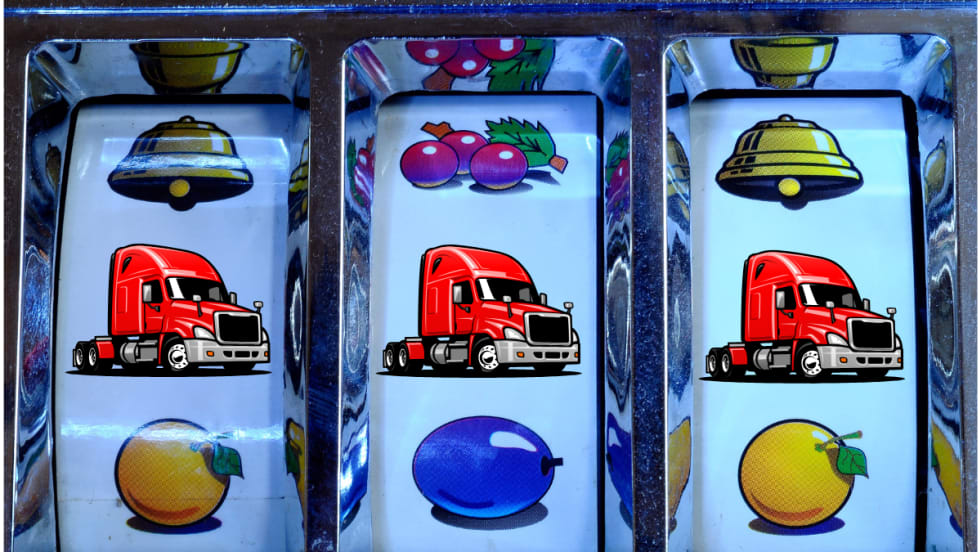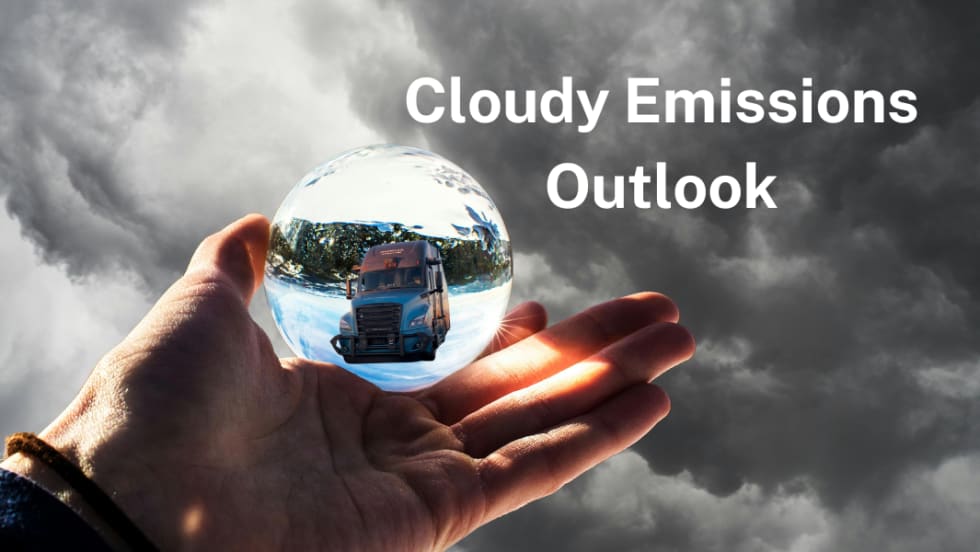CES – which stands for Consumer Electronics Show – has become one of the premier showcases for exhibiting new technology. It’s a must-exhibit venue for any company serious about establishing a reputation as a cutting-edge tech company. And, as this reputation has grown, so too have the number of trucking-related companies exhibiting at the show.
The show is massive. It takes up all four halls at the Las Vegas Convention Center. There is one hall dedicated solely to transportation – although the majority of the exhibitors are focused on the automotive sector, as opposed to trucking. And even then, it’s mainly suppliers at the show. Paccar, for example, was the only OEM with a booth at CES 2023. But large booths were occupied by ZF, which had dominating presence in the West (Transportation) Hall, as well as Waymo, which had a Freightliner Cascadia tractor fitted with its latest Waymo Driver autonomous control systems on display outside the Convention Center, in addition to many other companies.
There was far too much to cover comprehensively in a mere blog post. That said, here are a few take-aways that impressed me during my time at the show.
1. Software-Defined Vehicles at CES
Trade shows are often where all-new ideas and concepts are first presented to an industry. CES 2023 delivered on that front with lots of talk about a new design concept called “software-defined vehicles.”
I’ll have more to say about this later. But, in essence, software defined vehicles manage operations entirely by computer software programs. In other words, everything on the vehicle – from the brakes to the steering down to locking or unlocking its doors – is controlled by software.
Software-defined vehicles were a major theme at ZF’s booth. Board Director Martin Fischer said during a ZF press conference at the show that in essence, this is bringing iPhone design and functionality to vehicles and will deliver more efficient vehicle operations while enabling new functions, features and performance possibilities.
2. ZF Doubles-Down on High Tech
The next generation of cars, trucks, and vans will be software-designed vehicles. ZF used CES 2023 to stake out a position as a supplier of these new systems with the introduction of several advanced vehicle control systems. Chief among these is the upgraded ProAI onboard vehicle computer, which Fischer said is a more-powerful, multifunctional vehicle control system that will provide multi-domain computer power for vehicle control systems in a small, light, package that is 50% more powerful than its predecessor.
ZF also announced its new ZF ProConnect vehicle connection system is 4G and 5G capable for modular, customizable, programmable vehicle connectivity.
Building on those two systems, ZF introduced a suite of “By-Wire” vehicle control systems for all three dimensions (steering, braking and propulsion), Fischer said would also eventually enable new functions for autonomous vehicle systems.
Interestingly, ZF also mentioned (almost as an aside) that it was working on autonomous vehicle control systems that will be able to “hear” the world around them, in addition to “seeing” the world around them. The logic here is that these sound-sensitive systems will boost vehicle safety by listening for human shouts, emergency vehicle sirens, train horns and other audio cues in its operating environment.
3. Bosch Debuts Fleet-Focused Digital Charging System for EVs
Keying in on the electrification of commercial vehicles, Bosch introduced a fleet-focused digital charging system designed to help fleets manage all aspects of charging and efficiently operate electric trucks and vans.
According to Bosch, its new Digital Charging System will help fleets in four key areas:
Operational optimization by providing route optimization, and planning and monitoring charging operations
Billing and roaming with charge point booking and automated billing
Energy market participation with utility optimization and trading energy market credits
Smart energy management with peak shaving and energy management
Bosch said its Digital Charging System integrates with existing fleet infrastructure and management systems and can help manage every aspect of EV operations from the charge point to the driver.




